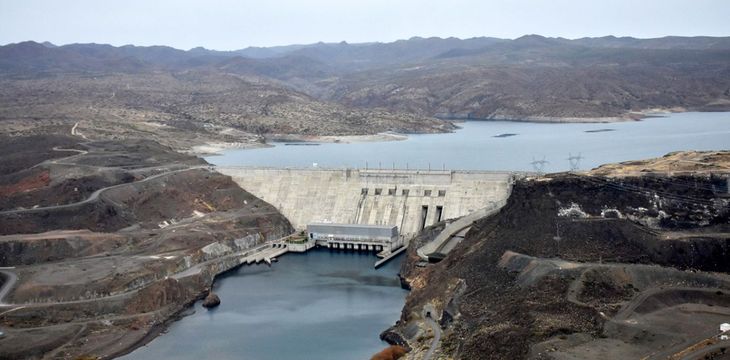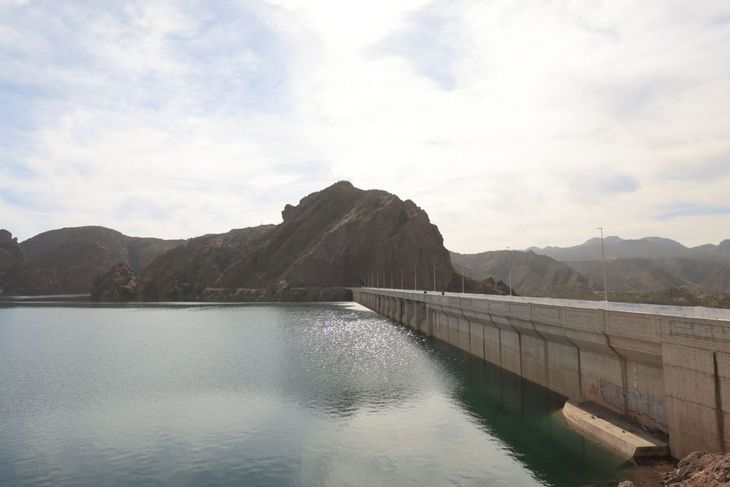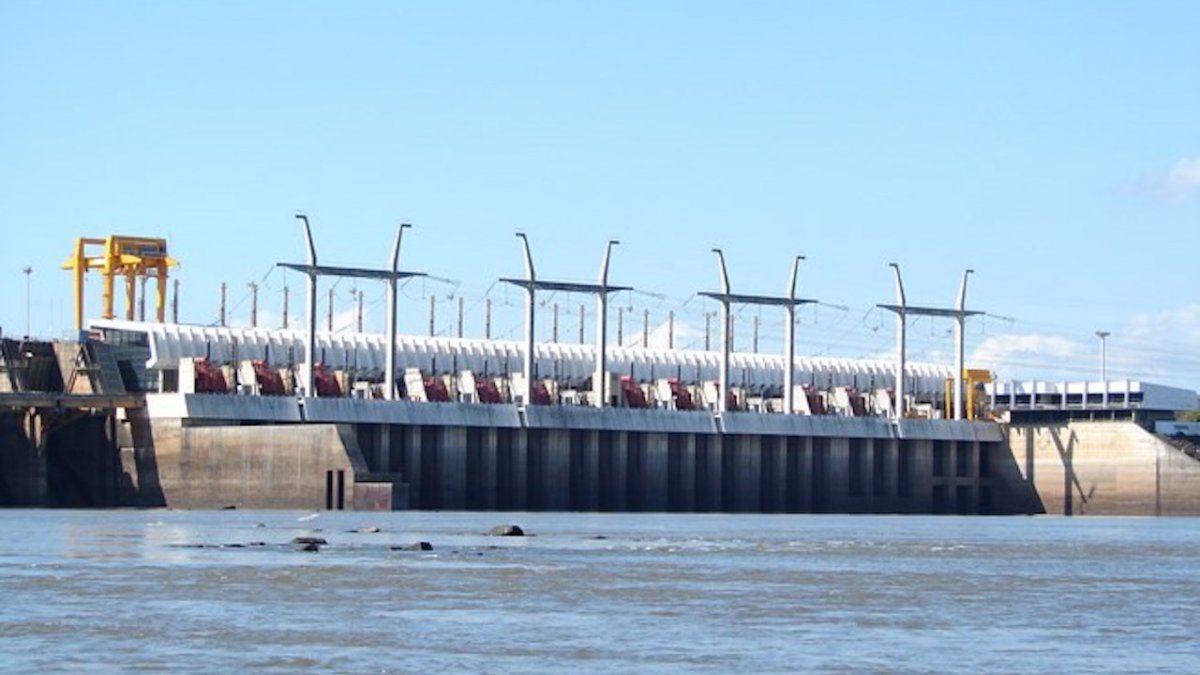It is worth remembering that in recent weeks Javier Milei made official the Federal Reparation Regimewhich seeks for the State and the districts to settle different mutual debts through the session of public lands, companies and other public assets, to reduce the pressure on the coffers in the midst of the chainsaw plan that has them as favorite victims.
In this framework, the governors line up to express their claims before the Casa Rosada. While some leaders will seek to include them in the conversations of the new regulations, others chose to renew the requests before Justice. Between Ríos, Neuquén, Río Negro and Mendoza These are some of the procedures that They will seek to pay off debts for their hydroelectric dams.
In this regard, the provincial state prosecutor, Julio Rodríguez Signespointed out that the objective is to “recompose the economic-financial equation of the 1999 agreements that gave rise to the Salto Grande surpluses” and, at the same time, “modify, with the intervention of the province, the way in which the Ministry of Energy of the Nation establishes the price of energy for binational hydroelectric dams”.
Rodríguez Signes specified that the energy coming from Salto Grande is “the cheapest in the country, even cheaper than that generated by Yacyretá.” He also argued that this occurs because from the Ministry of Energy of the Nation ““Compliance with the 1999 agreements is not considered.” In this way, the price does not generate surpluses and “if there are no surpluses, we will be left without an agreement,” he added.
Rogelio Frigerio.jpg
The province requires “that the resolutions issued from 2013 onwards, which set a harmful price, be declared unconstitutional and resolutions be issued that establish a fair price to comply with the 1999 agreements.” The presentation also includes the recognition of a debt “for works not carried out, the amount of which amounts to 175 million dollars”, the official expanded.
In April, when beginning the proceedings before the Supreme Court, Frigerio had assured: “We are owed around $4 billion in surpluses and royalties from the hydroelectric system. As for the surpluses, they owe us the entire second half of 2023 and all of 2024. And as for royalties, for years we received very unfair remuneration, almost three times less than what is received by Yacyretá.” “Entre Ríos, as an electrical generator, contributes twice the energy we consume to the system and, however, we receive the same treatment as if we were not, with all the damage that this caused us,” he concluded.
Neuquén and Río Negro push for Los Nihuiles
Another source of conflict between the Government and the provinces is the Comahue hydroelectric dams. At the forefront of the claims are Neuquen and Black River. Given the Government’s decision to privatize the firms Alicurá Hidroeléctrica Argentina SA, Chocón Hidroeléctrica Argentina SA, Cerros Colorados Hidroeléctrica SA and Piedra del Águila Hidroeléctrica Argentina SA
In recent days, the Neuquén government made a presentation to the Nation related to the royalties of the complexes and postponed works that the national administration had to carry out in the Cerros Colorados hydroelectric complex. The presentation was made by the local Minister of Infrastructure, Ruben Etcheverrybefore the new head of the Ministry of Energy of the Nation, Maria Tettamanti.
“We are asking the national government to allow us to collect the royalties in kind that correspond to us for the hydroelectric plants and to deregulate the collection,” The minister assured, and added “we also ask you for the necessary works to guarantee the safety of the Portezuelo Grande dam, which is a work that the national state must carry out and that is supported by a ruling from the Supreme Court of Justice that is already 15 years old. , the construction of additional reservoirs is necessary.”
Hydroelectric dam.jpg

The Comahue hydroelectric dams are at the center of the dispute between the Río Negro and Neuquén with the Government.
From Neuquén they indicated that in the presentations “The previous conversations held with the former Secretary of Energy of the Nation, Eduardo Rodríguez Chirilo, were recalled and the urgent repeal of article 15 and related articles (ccs.) was requested. of Resolution No. 20-E/17 of the Ministry of Energy of the Nation, and of arts. 1, 3 and ccs. of Resolution RESOL-2019-17-APN-SRRYME#MHA of the Secretariat of Renewable Resources and Electricity Market and other amending and/or complementary regulations (the “Resolutions”)”.
At the same time, Etcheverry claimed the “urgent intervention by the national government to execute the necessary works that guarantee the safety of life, the environment and the property of the inhabitants located downstream,” in relation to the current situation that the Cerros Colorados Complex presents in the face of the occurrence of exceptional floods of the Neuquén River.
Mendoza insists on royalties from Los Nihuiles
Mendozameanwhile, has already announced his intention to be part of the Federal Reparation Regime. In this framework, he anticipated that he will seek to include claims for royalties from Los Nihuiles, the hydroelectric complex formed by a set of dams on the Atuel River. It is made up of a reservoir (El Nihuil), a compensating reservoir (Valle Grande) and two intermediate dams (Aisol and Tierras Blancas) and has an installed capacity of 265 MW, which represents 0.6% of Argentina.
When listing the different requests that will be presented to the Nation, the Minister of Treasury and Finance of Mendoza, Victor Fayadrecalled: “There is the historical claim of the poorly settled royalties of Los Nihuiles, which could also be part of this regime, as long as we get the Nation to recognize them.” That figure would be more than US$550 million, taking into account that the complaint includes the retroactive ones.
Nihuil Mendoza Dam.jpg

One of the Los Nihuiles dams, in Mendoza.
Specifically, Alfredo Cornejo demands that the royalties received by the neighboring province of La Pampa – half of the total – pass into its own hands. The fight was already prosecuted some time ago by the former governor Rodolfo Suarez before the Supreme Court. This year, Mendoza extended the complex’s concession for 12 months, after the original one, which was signed in 1994 and extended for three decades, expired.
The shareholding composition of the Los Nihuiles company is: Inversora Nihuiles SA (Pampa Energía SA): 90.27%, and other minor shareholders: 52.04%, and Empresa Mendocina de Energía SAPEM: 47.96%.
“The complex will continue to operate with the same obligations that it has had during these 30 years and that it has until today, giving peace of mind to the staff of the concessionaire company who will continue working under the same conditions,” clarified on that occasion the local Minister of Energy and Environment, Jimena Latorre.
Source: Ambito
I’m a recent graduate of the University of Missouri with a degree in journalism. I started working as a news reporter for 24 Hours World about two years ago, and I’ve been writing articles ever since. My main focus is automotive news, but I’ve also written about politics, lifestyle, and entertainment.




